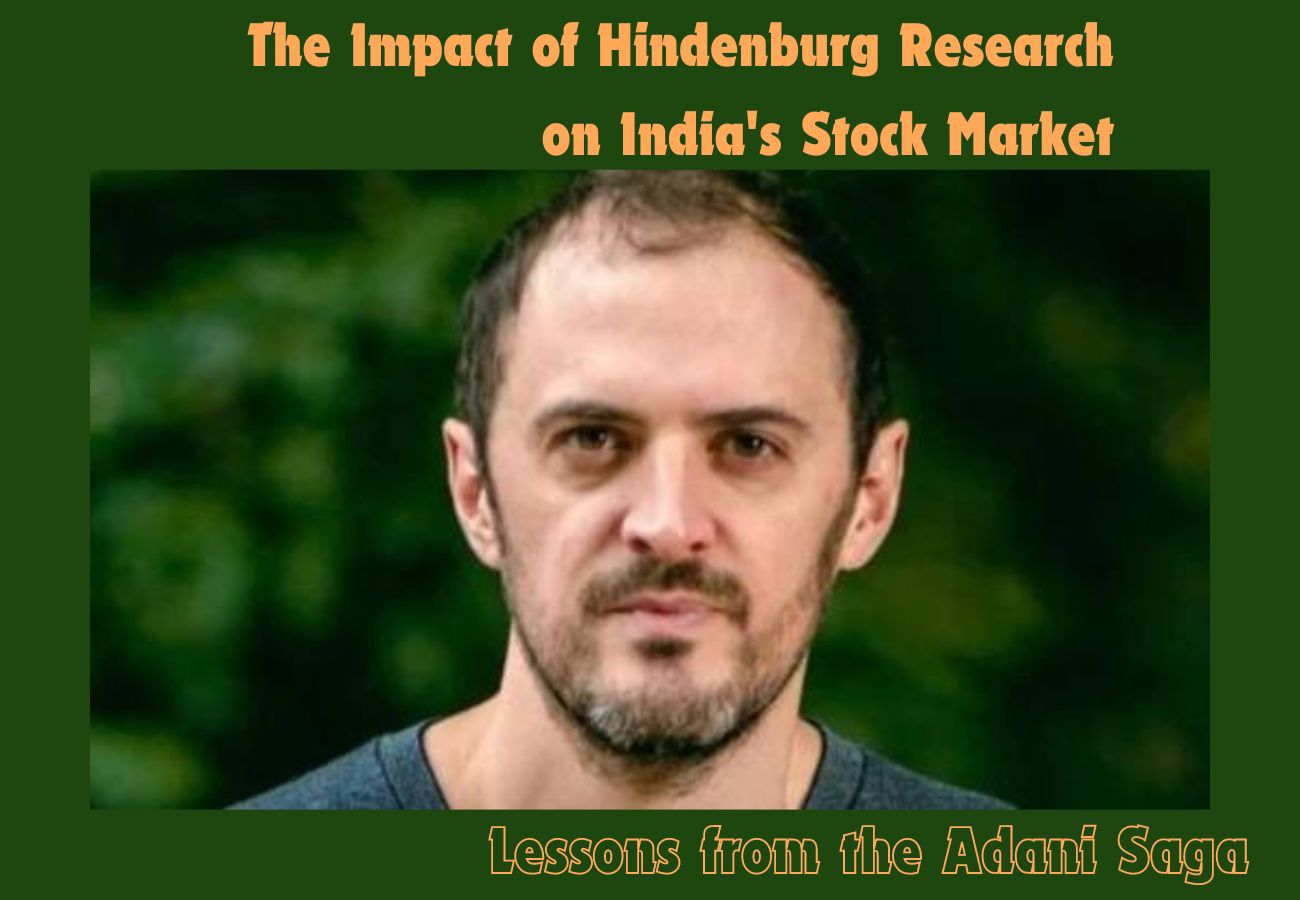The Impact of Hindenburg Research on India’s Stock Market: Lessons from the Adani Saga
Introduction: In recent years, the Indian stock market has faced unprecedented challenges, and one name that continues to resonate with investors and financial experts alike is Hindenburg Research. This research firm, known for its investigations into corporate fraud and market manipulation, has had a profound impact on India’s financial landscape, particularly with its explosive report on the Adani Group in January 2023. This blog explores the ripple effects of Hindenburg’s findings, the lessons learned, and the speculation surrounding their potential future targets.
The Hindenburg Effect on Adani |
|
| Hindenburg Research gained international notoriety in January 2023 when it published a report accusing the Adani Group of widespread corporate malfeasance. The report alleged that the conglomerate engaged in stock manipulation, accounting fraud, and money laundering, leading to an overvaluation of its shares. At the time, the Adani Group was headed by Gautam Adani, who had risen to become the third richest person in the world. The fallout from this report was swift and severe.
The Indian stock market, particularly the Bombay Stock Exchange (BSE), witnessed a dramatic decline in Adani’s share prices. Investors, both big and small, saw their investments evaporate almost overnight. The Adani Group, which had enjoyed meteoric growth, suddenly found itself in a precarious position. The company’s market capitalization plummeted, and Gautam Adani’s position on the global billionaire list nosedived. The shockwaves from this event were felt not just in India but across global markets. |
|
The Power of Speculation |
|
| One of the most concerning aspects of Hindenburg Research’s influence is the power of speculation. Following their report on Adani, social media was abuzz with rumors and predictions about which company might be Hindenburg’s next target. Recently, Nathan Anderson, the founder of Hindenburg Research, posted a cryptic message on his social media handle, hinting at another major revelation concerning the Indian market. This has sparked widespread speculation that the next target could be another prominent Indian conglomerate, with many pointing fingers at the Ambani family.
The Ambani family, which controls the Reliance Industries conglomerate, has long been a symbol of India’s economic might. With a net worth that accounts for a significant portion of India’s GDP, any potential allegations against them could have far-reaching consequences. The Ambani family’s recent high-profile events and their immense wealth have led to speculation that they might be in Hindenburg’s crosshairs. While these are just rumors at this stage, the mere possibility has caused unease in the market. |
|
Lessons Learned |
|
| The Adani-Hindenburg episode offers several critical lessons for investors, regulators, and corporations: | |
Due Diligence is Crucial |
Investors must conduct thorough research and not rely solely on a company’s reputation or the bullishness of its stock. The Adani debacle showed that even the most prominent names are not immune to scrutiny. |
Market Sentiment is Volatile |
The Indian stock market’s reaction to the Hindenburg report underscored the importance of market sentiment. Negative news, whether proven or not, can trigger massive sell-offs and lead to significant financial losses. |
Transparency and Accountability |
Corporations must maintain transparency in their operations and be prepared to address any allegations promptly. The Adani Group eventually managed to recover its market position, but the damage to its reputation lingered |
The Power of Information |
In the age of social media, information—accurate or speculative—spreads rapidly. Investors and companies alike must be vigilant and proactive in managing narratives that could affect their financial standing. |
Conclusion
The Hindenburg Research report on the Adani Group serves as a stark reminder of the fragility of market confidence and the far-reaching impact of investigative research. While Adani has managed to regain much of its lost ground, the incident has left an indelible mark on the Indian stock market. As speculation continues about Hindenburg’s next move, investors and companies must remain cautious and informed, ready to navigate the potential challenges ahead.
Whether the next target is the Ambani family or another major player in the Indian economy, one thing is clear: the lessons from the Adani-Hindenburg saga will continue to shape India’s financial landscape for years to come.
The Future of the Soar Gold Bond Scheme and Auto Industry Trends in India |


1 thought on “The Impact of Hindenburg Research on India’s Stock Market: Lessons from the Adani Saga”